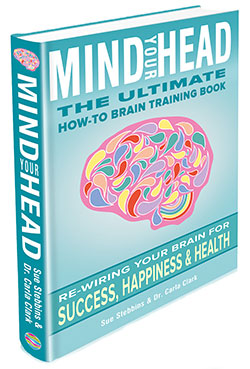Reid on Memory and Personal Identity
Rebecca Copenhaver
Page 2
Source: http://plato.stanford.edu/entries/reid-memory-identity/
Reid criticizes Hume's account of memory for duplicating Locke's mistakes. He quotes from Hume's Treatise of Human Nature:
We find by experience, that when any impression has been present with the mind, it again makes its appearance there as an idea; and this it may do after two different ways: Either when in its new appearance it retains a considerable degree of its first vivacity, and is somewhat intermediate betwixt an impression and an idea; or when it entirely loses that vivacity, and is a perfect idea. The faculty by which we repeat our impressions in the first manner, is call'd the MEMORY, and the other the IMAGINATION (Hume, Treatise, 1.1.3.1).
Like Locke, Hume holds that ideas have no continued existence. And so, Reid argues, Hume cannot claim that a numerically identical idea can reappear. In addition, Hume's account faces the same circularity objection as Locke's. Hume accounts for memory by appealing to an idea that is qualitatively similar to, but less forceful and vivacious than a previous idea. But the ability to judge qualitative similarity and degrees of force and vivacity between present ideas and past impressions presupposes memory.
Reid provides additional criticisms of Hume's account of memory. First, Reid interprets Hume's account of memory as committing him to the position that we have the power to repeat ideas (though notice that Hume does not commit to this in the quoted passage). Reid argues that this position is inconsistent with Hume's claim that impressions are the efficient causes of ideas. Reid's second criticism is more insightful; he argues that differences in degrees of force and vivacity are insufficient to sustain the distinctions between perception, memory and imagination. Reid interprets Hume as holding that these three faculties do not differ in kind, but rather in the degree of force and vivacity of the ideas that are their objects. Ideas with the greatest degree of force and vivacity are perceptions, those with a lesser degree are memories, and those with the least degree of force and vivacity are imaginings. Reid criticizes this taxonomy on phenomenological grounds. Some perceptions are less forceful and lively than some memories, as when lost in reminiscence, and some memories are less forceful and lively than imaginings, as when lost in reverie. Furthermore, increasing the degree of force and vivacity does not transform a memory or an imagining into a perception. Reid compares striking one's head against the wall to lightly touching it to the wall. The latter has much less force and vivacity than the former, yet lightly touching one's head to the wall is neither a memory nor an imagining (Essays, 289).
Reid grants that perceptions, memories and imaginings often differ in degree of force and vivacity, but, he argues, this difference is insufficient to account for the special quality of presentness represented in perceptions, the special quality of pastness represented in memories, and the special quality of atemporality represented in imaginings (Inquiry, 197). While memories may be faint, or weak, these features are not necessary to these states being memories, and so cannot be used to individuate them. In addition, a present idea—whatever its degree of force and vivacity—cannot ground judgments about events in the past because present ideas represent events as present.
For according to that theory, the immediate object of memory, as well as every other operation of the understanding, is an idea present to the mind. And, from the present existence of this idea of memory I am led to infer, by reasoning, that six months ago or six years ago, there did exist an object similar to this one…But what is there in the idea that can lead me to this conclusion? What mark does it bear of the date of its archetype? (Essays, 476)
Present ideas contain no information, qualitatively or representationally, that could serve as the basis of judgments about past events. As a result, no reflection on present ideas and their quality or character is sufficient for a representation of events in the past, as past.
2. A Direct Realist Theory of Memory
Contemporary philosophers and cognitive scientists recognize that memory is a diverse phenomenon and they draw some useful distinctions among varieties of memory.For example, Endel Tulving distinguishes between episodic memory, semantic memory and procedural memory. Remembering how to ride a bike is an example of procedural memory. Remembering that Napoleon was defeated at Waterloo is an example of a semantic memory. Remembering one's tenth birthday party is an example of an episodic memory.
The distinction most relevant to the issues Reid, Locke and Hume raise for memory and personal identity is between semantic and episodic memory. Henri Bergson and Bertrand Russell developed a similar distinction, and Russell's distinction between factual and personal memory accords with that between semantic and episodic memory. Semantic memories are properly reported using a factive complement—a that-clause—after the verbs ‘remember’ or ‘recall’, as in ‘Jane remembers that Napoleon was defeated at Waterloo’. In particular, a semantic memory cannot be reported using the form ‘S remembers/recalls [x] f-ing’, as in ‘Jane recalls her tenth birthday party,’ or ‘John remembers falling off his bike.’ Only episodic memories may be properly reported using this form. No one today can properly report ‘I remember Napoleon being defeated at Waterloo,’ though many may properly report ‘I remember that Napoleon was defeated at Waterloo.’ On the other hand, an episodic memory can be reported using the same form by which semantic memories are reported because episodic memories may ground semantic memories under certain circumstances. It is legitimate to state both ‘I recall my tenth birthday party,’ in reporting an episodic memory of that event and to state ‘I remember that I had a tenth birthday party’, in reporting a semantic memory, whose justification would appeal to the previous episodic memory.
Episodic memories are further distinguished from semantic memories by the Previous Awareness Condition on episodic memory. The Previous Awareness Condition has been developed and examined by Sydney Shoemaker (1970), among others. Put simply, one has an episodic memory of an event only if one was agent or witness to the event remembered. The Previous Awareness Condition is a necessary but insufficient condition on episodic memory. If one has an experience as of being lost in a store as a child, but one was not in fact lost in a store as a child, such an experience is not an episodic memory. On the other hand, each of us has been agent or witness to many events of which we have no episodic memory. For example, one may not remember one's third birthday party and so lack an episodic memory of an event to which one was surely witness.
We Make it Easy to Succeed
Successwaves, Intl.
Brain Based Accelerated Success Audios
 |






